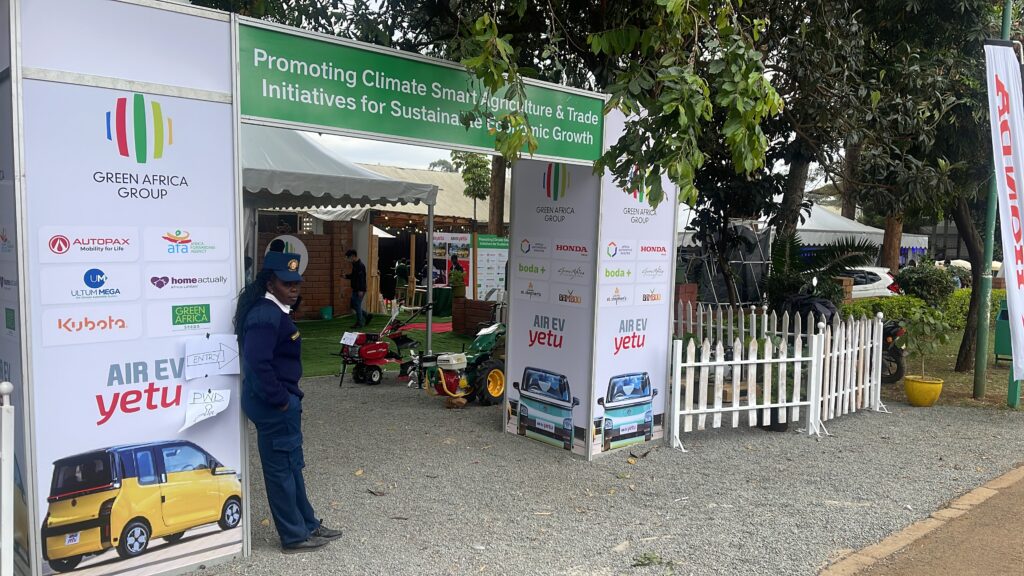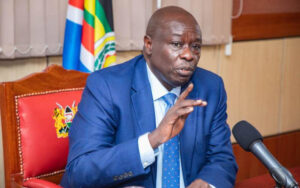Last week, I was honored to participate in the Nairobi International Trade Fair, which concludes today. This year’s theme was compelling – Promoting Climate Smart Agriculture and Trade Initiatives for Sustainable Economic Growth. This theme captures the one word that will drive Africa rapidly toward developed-world status — trade.
If Africa is to keep pace with and eventually rival developed world economies like the USA, China, and Japan, it must trade substantially more than it does today. As reported, there is a chronic trade imbalance between Africa and developed world countries. Even more troubling is that intra-African trade is quite low, with less than 18% of African exports staying within the continent, compared to 59% in Asia and 68% in Europe. To bridge these gaps, we must focus on boosting intra-African trade and leveling out the trade imbalance with the developed world by doing the following four things.
Firstly, we must increase the quality of our products. When he opened the Nairobi Trade Fair, Deputy President Rigathi Gachagua purchased two champion bulls worth Sh1.6 million. You would have to sell as many as twenty regular bulls to make such money. The champion bulls are substantially more expensive because they are special breed Boran bulls, known for their superior genetics and productivity. Quality is key. The global market values products that meet high standards, and Africa must invest in quality control, certification, and standards to compete effectively. By improving the quality of agricultural and manufactured goods, we can demand higher prices and expand market access.
Secondly, we must add value to our agricultural products through processing. Did you know that wines can be made from watermelon and cactus, in addition to the more common grapes and berries? At the Nairobi International Trade Fair, Jomo Kenyatta University of Agriculture and Technology (Jkuat) showcased its fruit wines, including watermelon wine, which they began producing in 2006 to curb post-harvest losses. Commercialized in 2007 after approval by the Kenya Bureau of Standards, a 750 ml bottle of the wine contains 12% alcohol and sells for Sh1,000. With further research into cactus wine underway, Jkuat also produces wine from bananas and pineapples. I suggest that the Ministry of Trade enacts policies that will boost the market share of such locally produced products across Africa and the world.
Thirdly, we must strengthen regional integration and infrastructure. A significant obstacle to intra-African trade is the lack of sufficient infrastructure. Poor road networks, inadequate rail systems, and underdeveloped ports have hampered the movement of goods between African countries. According to the African Development Bank (AfDB), Africa needs approximately $130–170 billion per year to close its infrastructure gap. Without modern infrastructure, trading across borders remains inefficient and costly. Strengthening regional integration through initiatives like the African Continental Free Trade Area (AfCFTA) can address some of these issues. AfCFTA, which covers 54 of Africa’s 55 countries, aims to create a single market of over 1.3 billion people with a combined GDP of $3.4 trillion. To make this a reality, Africa needs to stop corruption that bleeds our wealth and invest in cross-border infrastructure—roads, railways, and ports—to lower transportation costs, streamline customs procedures, and ensure smoother trade flows.
Fourthly, we need to boost digital trade and e‑commerce. Digital trade is a game-changer that Africa must leverage. The COVID-19 pandemic accelerated the adoption of e‑commerce globally, and Africa saw a 21% growth in online shopping. Despite this progress, digital trade remains underutilized, with barriers such as inadequate internet penetration, limited digital literacy, and lack of robust payment systems. Africa can boost trade by embracing digital solutions. Additionally, increasing investments in internet infrastructure and digital literacy programs can help businesses, particularly MSMEs, reach global markets. According to the International Trade Centre, digitalization could increase African exports by over $4 billion annually. Therein lies the answer.
Now, do you agree that these four strategies could be game changers? What simple action will you take to make a difference, even as policymakers play their part? Think green, act green!



